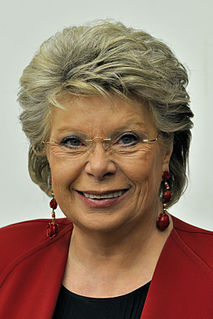A Quote by R. Buckminster Fuller
Since the initial publication of the chart of the electromagnetic spectrum, humans have learned that what they can touch, smell, see, and hear is less than one-millionth of reality. Ninety-
nine percent of all that is going to affect our tomorrows is being developed by humans using instruments and working in ranges of reality that are nonhumanly sensible.
Related Quotes
Gnomes live ten times faster than humans. They're harder to see than a high-speed mouse. That's one reason why most humans hardly ever see them. The other is that humans are very good at not seeing things they know aren't there. And, since sensible humans know that there are no such things as people four inches high, a gnome who doesn't want to be seen probably won't be seen... Wings.
Magic is really only the utilization of the entire spectrum of the senses. Humans have cut themselves off from their senses. Now they see only a tiny portion of the visible spectrum, hear only the loudest of sounds, their sense of smell is shockingly poor and they can only distinguish the sweetest and sourest of tastes.
To wait. In our lives we know joy, anger, sorrow, and a hundred other emotions, but these emotions all together occupy a bare one percent of our time. The remaining ninety-nine percent is just living in waiting. I wait in momentary expectation, feeling as though my breasts are being crushed, for the sound in the corridor of the footsteps of happiness. Empty. Oh, life is too painful, the reality that confirms the universal belief that it is best not to be born.
Everything we know about the universe is studied by using telescopes or other instruments that look at visible light, infrared, ultraviolet or X-ray - different wavelengths of electromagnetic interactions. Only 4 percent of what's in the universe gives off electromagnetic radiation, so we don't have any handle on the rest.
I argue that science would be much richer if it were multisensory. The problem with instrumentation is that instruments, unlike our senses, can be monosensory. Since the discovery of the electromagnetic spectrum - which is really the discovery that all energy coming from something has a wave form - in theory we could image anything along that spectrum. In fact, we don't, because only certain parts of the spectrum have been instrumentalized. But the new thing is computerization. You can take all the data, the measurement of the frequencies, and transform it into an image.
The technology involved in making anything invisible is so infinitely complex that nine hundred and ninety-nine billion, nine hundred and ninety-nine million, nine hundred and ninety-nine thousand, nine hundred and ninety-nine times out of a trillion it is much simpler and more effective just to take the thing away and do without it.
Ninety-nine percent of everyday things are things we don't need - that goes for regular visits to the hairdresser just as it does for clothing. What would it mean if we all consumed 20 percent less? It would be catastrophic. It would mean 20 percent less jobs, 20 percent less taxes, 20 percent less money for schools, doctors, roads. The global economy would collapse.
I think that animals aren't less intelligent than humans, they're just of a different intelligence. We have five million smell-sensitive cells in our nose, they have two hundred and fifty million - they can smell emotion. They can smell different types of emotion, they just have another type of intelligence.
It's hard for us to imagine, as humans, that we'll become less powerful. But it'll be healthier for the planet and for the eco-system if that does happen. If humans are going to merge with machines, then let's get on with it. I love humans, but I also love dinosaurs - I'm pretty sure I wouldn't have wanted them to die out, either.




































